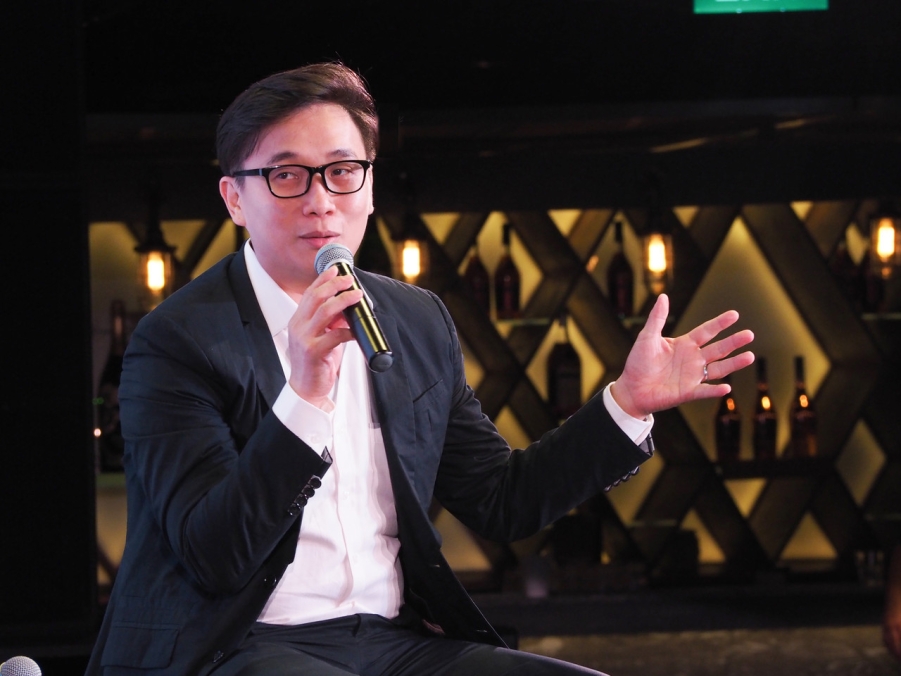
Fighting counterfeits in retail through blockchain with LINFINITY
The company’s goal is to create a new supply chain system based on AI, IoT, and blockchain.
With e-commerce and online delivery continuing to gain in popularity with the convenience and efficiency it provides to consumers and businesses alike, the need for closer inspection and
commitment to authenticity of products from one end of the supply chain to another is important given the rise in counterfeits that not only threatens to destroy the reputation of genuine businesses but also ruins the retail experience of consumers—something that LINFINITY hopes to address with its tools and services using blockchain, Artificial Intelligence(AI) and Internet of Things(IoT).
The rise in counterfeits is staggering on a regional and a global scale. According to a survey released by the European Intellectual Property Office, 13 economic sectors in Europe have lost about €60b each year due to fake and shoddy products, which also account for about 7.5% of annual sales.
Data from the Organisation for Economic Co-operation and Development, meanwhile, revealed that global counterfeiting is worth more than $250b annually, which negatively affects local economies with million in losses through jobs and other productive activities.
“The social losses caused by counterfeiting and selling are not only figures, but also continuously expanding negative effects on their brands and customers,” said Anndy Lian, chief executive
officer of LINFINITY. “Counterfeiting is a major problem in global supply chains, causing not only corporate revenue and reputation losses, but also potential damage to consumers. Once the enterprise loses trust, it is very difficult to regain trust.”
This is especially important for the experience of first-time customers as their impression not only rely on the products they buy but also on the reputation and conduct of the business or enterprise they buy the products from. Having a mechanism to verify, monitor, and authenticate transactions and commodities from one end of the supply chain to another will help solve this issue.
Comprehensive ecosystem
This is the problem that LINFINITY is trying to address, according to Lian. The CEO noted that the company’s goal is to build a supply chain ecosystem based on the combination of three things: Artificial Intelligence(AI), Internet of things, and blockchain.
The core of the ecosystem, he said, is information on-chaining, where commodity information is packaged and uploaded into blocks where enterprises can have a clear control and access over their entire supply chain processes, while being assured that the information on the chain is secure, transparent, and cannot be tampered, heightening the security and authenticity feature of the ecosystem.
“In addition, consumers can check the detailed information by scanning the QR code attached to the product to identify the genuineness of the purchased products, and trace various processes, and also enable the merchant to reach the mass consumers and make their products meet the target,” he said.
This will help prevent the occurrence of usual pitfalls of traditional merchants operating under the traditional system of a supply chain, which is vulnerable to security hacks and the emergence of counterfeits.
Blockchainisation is not complicated
LINFINITY’s ability to offer blockchainbased anti-counterfeiting solutions in the retail and supply chain sectors is what makes the company and the tools it offers more appealing. Lian noted that part of the reason why blockchain is not yet widely applied in the retail and supply chain landscape despite its obvious strengths and offering to improve these sectors is that a lot of people don’t have a proper understanding of it.
“Blockchain is not a new concept, but its current practical application is concentrated in the field of digital currency,” he said. “Many enterprises are even less clear about where to start using blockchain technology,unilaterally thinking that moving from the original business model to ‘blockchainisation’is a rather complicated process.”
This is something that is central to LINFINITY’s goals: not just to offer tools and services based on blockchain technology, but to share knowledge and understanding of what blockchain is and what it can offer to their respective businesses. “LINFINITY provides several ways to assist enterprise users in their business applications of blockchain. Blockchainisation is not complicated, enterprises don’t need to upload information of the whole of every business process, but only package and upload necessary information according to their own needs,” the CEO said.
Some of the efforts that the company has done is partnering with other brands all over the Asia and Pacific region. These includes launching blockchain anti-counterfeiting projects for Scientific Tradition, a local Lingzhi product producer and Herbriller, a Japanese haircare brand.
























 Advertise
Advertise










